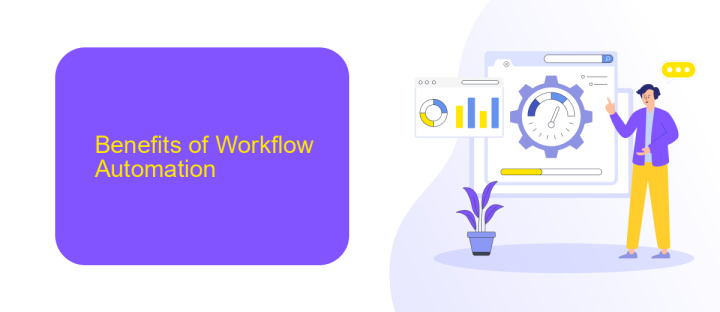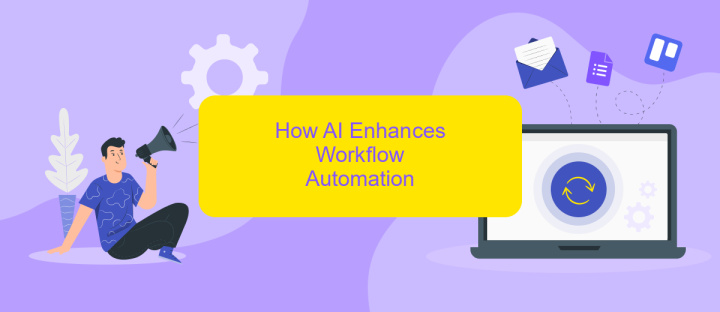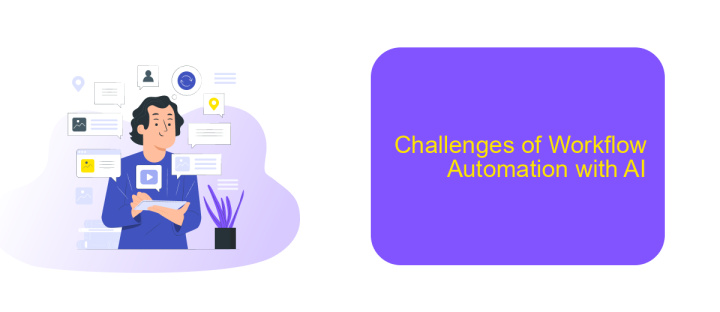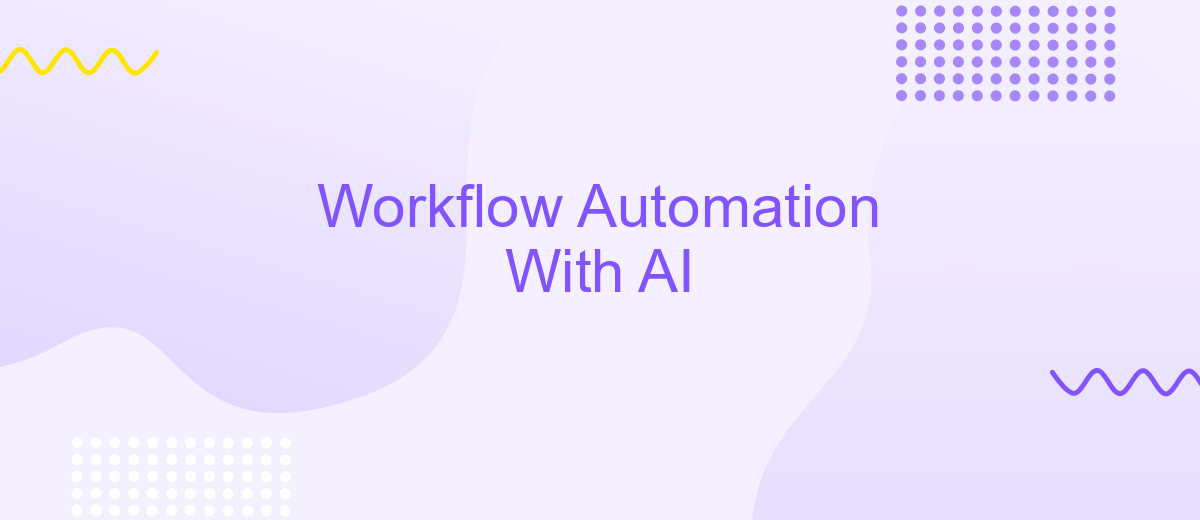Workflow Automation With AI
In today's fast-paced business environment, workflow automation with AI is revolutionizing the way organizations operate. By leveraging artificial intelligence, companies can streamline processes, reduce human error, and significantly boost productivity. This article explores the transformative impact of AI-driven automation on workflows, highlighting key benefits, practical applications, and future trends that are reshaping industries worldwide.
Introduction
In today's fast-paced business environment, workflow automation has become essential for maintaining efficiency and competitiveness. By leveraging artificial intelligence (AI), organizations can streamline processes, reduce human error, and enhance productivity. AI-powered tools can manage repetitive tasks, allowing employees to focus on more strategic activities.
- Automated data entry and processing
- Intelligent document management
- Enhanced customer service through chatbots
- Predictive analytics for better decision-making
One of the key aspects of implementing AI in workflow automation is the seamless integration of various tools and services. Platforms like ApiX-Drive facilitate this by offering easy-to-use solutions for connecting different applications without the need for coding. This ensures that businesses can quickly adapt and scale their operations, making workflow automation more accessible and effective.
Benefits of Workflow Automation

Implementing workflow automation with AI offers numerous benefits, significantly enhancing efficiency and productivity across various business processes. By automating repetitive tasks, employees can focus on more strategic activities, leading to better resource allocation and improved job satisfaction. AI-driven automation helps in reducing human errors, ensuring more accurate and reliable outcomes, which is crucial for maintaining high standards and compliance in any organization.
Another major advantage is the seamless integration of different tools and systems, facilitating smoother operations. Services like ApiX-Drive enable businesses to easily set up integrations between various applications, ensuring data flows effortlessly across platforms. This not only saves time but also enhances data consistency and accessibility. Moreover, AI-powered analytics provide valuable insights, helping organizations make informed decisions and stay competitive in the market. Overall, workflow automation with AI is a transformative approach that drives operational excellence and fosters innovation.
How AI Enhances Workflow Automation

Artificial Intelligence (AI) significantly enhances workflow automation by streamlining processes and reducing manual intervention. With AI, businesses can achieve higher efficiency, accuracy, and speed in their operations, ultimately leading to cost savings and improved productivity.
- Data Processing: AI algorithms can quickly process large volumes of data, identifying patterns and insights that would be impossible for humans to detect in a reasonable timeframe.
- Task Automation: AI-powered tools can automate repetitive tasks such as data entry, scheduling, and customer service, freeing up employees to focus on more strategic activities.
- Integration and Coordination: Platforms like ApiX-Drive facilitate seamless integration between different software applications, ensuring that data flows smoothly across systems without manual intervention.
- Predictive Analytics: AI can analyze historical data to predict future trends, helping businesses make informed decisions and optimize their workflows accordingly.
Moreover, AI-driven workflow automation minimizes errors, enhances decision-making, and provides real-time insights, making it an invaluable asset for modern businesses. By leveraging AI technologies and integration services like ApiX-Drive, companies can create a more cohesive and efficient operational environment.
Challenges of Workflow Automation with AI

Workflow automation with AI presents numerous challenges that organizations must navigate to achieve optimal efficiency. One of the primary issues is the integration of AI tools with existing systems. Many companies have legacy systems that are not easily compatible with modern AI technologies, requiring significant time and resources to bridge the gap.
Another challenge is data quality and availability. AI-driven automation relies heavily on large volumes of high-quality data to make accurate predictions and decisions. Inconsistent or incomplete data can lead to errors and inefficiencies, undermining the benefits of automation.
- Integration with legacy systems
- Data quality and availability
- Employee resistance to change
- High implementation costs
Despite these challenges, services like ApiX-Drive can facilitate smoother integration processes by providing tools that connect various applications and automate data transfer. By leveraging such services, organizations can mitigate some of the difficulties associated with AI-driven workflow automation, paving the way for more streamlined operations.
Best Practices for Workflow Automation with AI
Implementing workflow automation with AI requires a strategic approach to ensure efficiency and effectiveness. Begin by identifying repetitive tasks that can be automated and prioritize them based on their impact on productivity. It's crucial to involve key stakeholders in the planning phase to understand their needs and to ensure the AI solutions align with organizational goals. Regularly monitor and evaluate the performance of automated workflows to make necessary adjustments and improvements.
Integrating various tools and systems is essential for seamless workflow automation. Utilizing services like ApiX-Drive can simplify the process of connecting different applications and automating data transfers. Ensure that your AI solutions are scalable and flexible to adapt to changing business requirements. Additionally, maintain robust data security measures to protect sensitive information. Continuous training and support for employees on using AI tools will foster a culture of innovation and efficiency.
- Automate the work of an online store or landing
- Empower through integration
- Don't spend money on programmers and integrators
- Save time by automating routine tasks
FAQ
What is workflow automation with AI?
How can AI improve workflow efficiency?
What types of tasks can be automated using AI?
How do I integrate AI into my existing workflows?
What are the benefits of using workflow automation tools like ApiX-Drive?
Time is the most valuable resource in today's business realities. By eliminating the routine from work processes, you will get more opportunities to implement the most daring plans and ideas. Choose – you can continue to waste time, money and nerves on inefficient solutions, or you can use ApiX-Drive, automating work processes and achieving results with minimal investment of money, effort and human resources.


